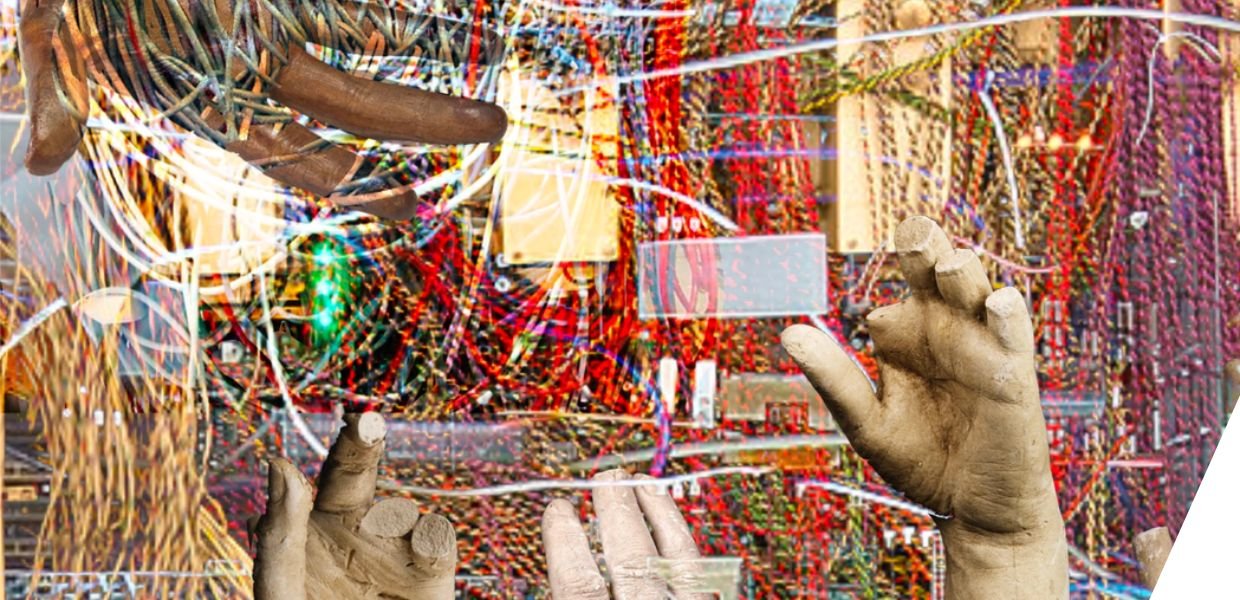This paper is the first outcome of the Alignment Assembly on Culture for AI, a collective intelligence exercise initiated within the data space, which engaged circa 400 professionals. It maps the results of the community consultation, identifies areas of consensus, friction and uncertainty and pinpoints topics that require further exploration. The paper identifies two opinion groups: boundary-setters (32% of respondents), critical of AI use, and opportunity-seekers (68%), advocating for its adoption. These groups are not polar opposites; rather they represent sometimes conflicting views many of us hold that need to be recognised and balanced.
Read the paper in full to explore key themes and insights that emerged from this exercise and take a look at the key insights below. These range from defining and defending the sector’s position and responsibilities, to positioning heritage data as responsible AI training material, using AI in a way that is climate responsible or preventing the perpetuation of biases when AI is used with heritage data, among others.
The paper and approach were developed by the Europeana Foundation and the Netherlands Institute for Sound & Vision, on behalf of the common European data space for cultural heritage.
Key insights
-
Our community agrees that AI is neither a holy grail nor an existential threat – there is a need to shape our own narratives and advocate for sector-specific solutions.
-
There is friction when it comes to balancing the promotion of AI-supported workflows with questions around pace: when to speed up and when to slow down.
-
There is consensus on the need to embed environmental sustainability by design in AI tools.
-
There is consensus on the need to balance technological development with upskilling, and on our shared responsibility to educate audiences. However, there is friction around what skills constitute AI literacy and the level of technical knowledge required.
-
There is consensus on the importance of building collaborations based on shared values rather than data exploitation and on fostering cross-sectoral and international approaches – including partnerships beyond Europe.
-
Potential avenues for further work include developing principles for collaboration, collecting case studies and highlighting areas of our unique expertise that could support cross-sectoral collaborations.
Building on these insights, the paper also outlines directions for further community work and proposes a set of priorities, an action plan and immediate next steps. This work serves as the starting point for a deeper, ongoing dialogue within the digital cultural heritage community about its engagement with and stance on AI technologies.
What else is in store for AI in the data space?
If the digital cultural heritage community is to play a meaningful role in the development of AI, it must first develop a shared vision. Yet the vague use of terms such as ethical, trustworthy and participatory AI, combined with the lack of concrete practices to make these concepts tangible, creates complexity and uncertainty. As the Europeana Initiative and its partners scale up the common European data space for cultural heritage, the question becomes urgent: what role should the data space take in responsible AI development and adoption?
To address this important question, we are working towards shaping a joint understanding and shared vision, through events such as the Europeana Network Association Cross-Community Workshop on Culture for AI, taking place on 27–28 October 2025 at the SMK – National Gallery of Denmark, Copenhagen. Organised by EuropeanaTech, in partnership with SMK, AI4LAM, Netherlands Institute for Sound & Vision and the Europeana Initiative, it will bring together 30 ENA members to review emerging insights from the Assembly, share perspectives from their areas of expertise and contribute to a sectoral position on the responsible use of AI. The outcomes of the workshop will be captured in a paper, which we will make sure to broadly disseminate due course, so a wider audience will be able to follow and benefit from the insights that emerge.
Following the workshop, the Europeana Foundation and SMK will host a high-level policy webinar on culture and AI in the data space. This webinar will bring together policymakers and experts from Denmark and across Europe, with a broad online audience and a selected group of participants attending onsite. It will draw upon the insights and discussions from the ENA workshop.
The ENA 2025 General Assembly on 13 November 2025 will also put AI in focus, exploring how the ENA and its Communities are engaging with AI.
And last but not least, data space partners will contribute to ‘AI Everywhere, All at Once’ AI4LAM’s annual conference, taking place from 3–5 December 2025 at the British Library in London. In particular, we look forward to delivering a lightning talk on ‘Culture for AI: formulating an alignment’ on 4 December.
Read the paper
We are excited to be taking all of these steps and invite you to get involved and read the paper in full.









